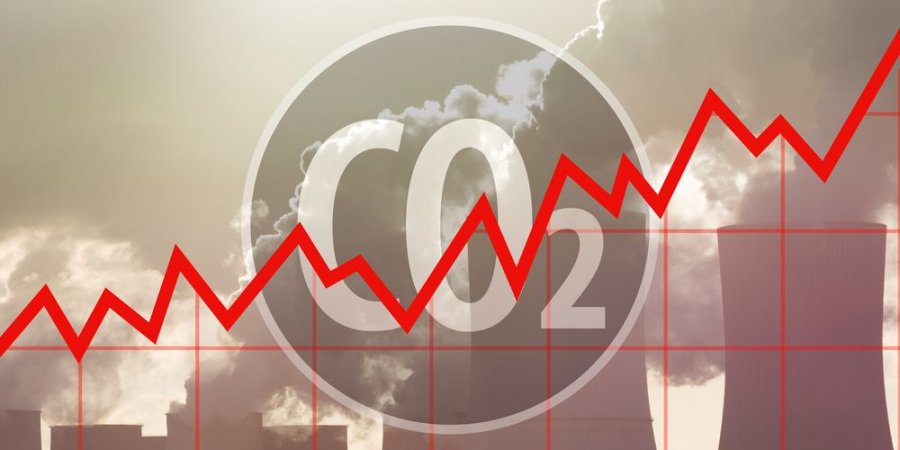A new report by the International Energy Agency (IEA) has shown that in 2023, energy-related carbon dioxide emissions reached a record high of 37.4 billion tons.
This figure increased by 1.1% over the year, Deutsche Welle reports.
The IEA emphasized that carbon emissions are not decreasing rapidly, which is necessary to achieve the climate goals of the Paris Agreement. However, the development of solar and wind energy, as well as electric vehicles, helped to offset the impact of continued coal combustion and rising oil demand, which amounted to 1.3% in 2022.
The report said that the overall increase in emissions was driven by China's economic recovery from the COVID-19 pandemic and the resumption of the aviation sector.
In addition, severe droughts in China, the United States, India and other countries have reduced hydropower generation. This led to a 40% increase in emissions (by 170 million tons). The IEA also noted the achievements of China, which provided about 60% of the global increase in solar, wind, and electric vehicles in 2023.
"Without this effect, emissions from the global electricity sector would have fallen in 2023," the IEA said, adding that carbon emissions from burning coal accounted for the rest of the increase.
The report highlighted that 2023 was the first year in which at least half of electricity production in industrialized countries came from low-emissions sources such as renewables and nuclear power.
It is noted that thanks to the scaling of renewable energy sources, energy-related emissions have decreased by 4.1% in the US, and by 9% in the EU. Overall, emissions in advanced economies fell to a 50-year low as demand for coal fell to levels not seen since the early 1900s.
The report stressed the importance of strong cuts in carbon emissions over the coming years to limit global temperature rise and prevent dramatic climate change.
UN Secretary General António Guterres said that reducing emissions is essentially the responsibility of the Group of Twenty countries.
"It is absolutely essential that there is much greater ambition to reduce emissions, and this is essentially the responsibility of the G20 countries, which account for 80% of emissions," Guterres said.
Earlier, EcoPolitic wrote, that according to forecasts of the International Energy Agency, the record production of electricity from low-emission sources, in particular nuclear and renewable, should cover the entire increase in global demand for electricity until 2026.
As EcoPolitic previously reported, the analysis of the Center for Energy and Clean Air Research (Crea) showed that in 2023, EU carbon emissions from burning fossil fuels decreased by 8% compared to 2022 and reached the level of the 1960s.





